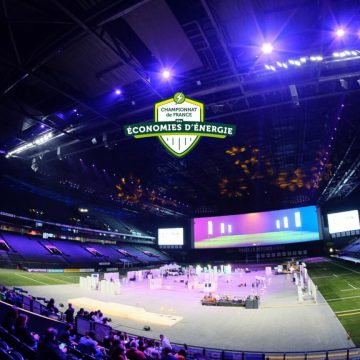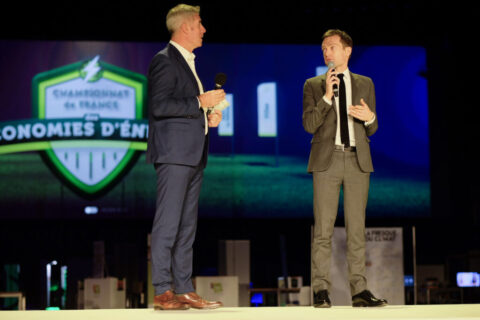The sociological feedback from the survey “Sociocube”, a study led on the 1st edition of the CUBE 2020 contest (a one-year energy efficiency competition between buildings), shows the basic psychosocial factors to get an environment-friendly behaviour change at work from employees. Sociologists have notably addressed the issue of the “perceived behavioural control”, which is the liberty and self-determination that people feel when considering a behavioural change.
Indeed, this sense of control (and not to be controlled by others or by technology) partly decides the will or not to adopt an ecological behaviour. It is required that the employees feel themselves in position to implement the recommendations to save energy. They need to be given the specific means and have no doubt on their efficiency. The key words are trust, autonomy, exercise of free will and clear instructions. On the contrary, “unsuitable” behaviours (in the point of view of engineers) are explained by the ignorance of how an equipment works, a lack of flexibility to set one’s office temperature, the doubt on one’s gestures’ impact on energy consumptions, a misjudging of the complexity of the recommendations or the unawareness of the most energy efficient gestures. Overall, the occupants who were involved in running the contest CUBE 2020 are the people who have inter alia a high personal sense of control.
Thus, the positive correlation between the pro-environmental behaviours at work and the sense of control shows the key role of the personal sense of control in the awareness rising. It determines the output: building’s occupants mobilised for energy savings gestures.
In short, to increase the personal sense of control of the occupants, it is imperative to give them the possibility to make choices and take decisions. For instance, many CUBE 2020 candidates testified that being able to adjust the heating systems to their individual needs increased their personal implication and their sense of control.
“The occupant will break everything”, such a cliché!
First, technicians are reluctant to give more power to the occupants concerning systems’ operation and use: the occupants wouldn’t be able to decide amongst themselves and would have an erratic and energy intensive use of the regulators. “They would set the air conditioning temperature every hour and no one will be satisfied!” a candidate said. However, during the contest, several correspondents chose to individualise the heating setting points by modifying the hardware. The feedback? Decentralisation produces beneficial effects at least by reducing the occupants’ complains. And indeed, reality seems far from the professionals’ stereotypes: practically, the decentralisation increases the occupants’ autonomy in the controlling and happens to be eventually an occasion to communicate with the occupants about the equipment operation, for instance by giving the main use instructions of a control thermostat. An operator remembers: “When I went for the installation, they told me at first: “we don’t know what 1,2,3,4,5 means!”. I explained 3 was comfortable, and 2 was 19°C/20°C.”
Delphine Labbouz-Henry
Research fellow at LAPPS, Paris-Ouest Nanterre-La Défense University
The contest CUBE 2020 official website: www.cube2020.org/Europe






